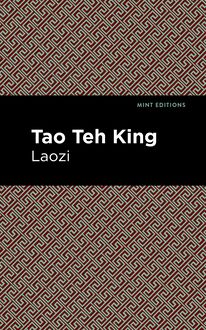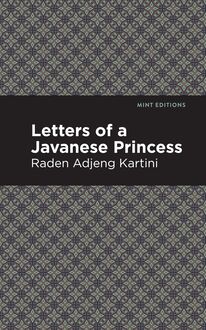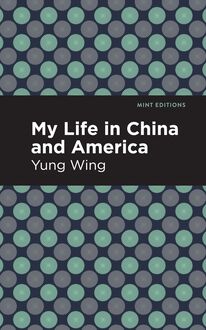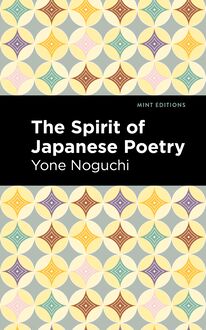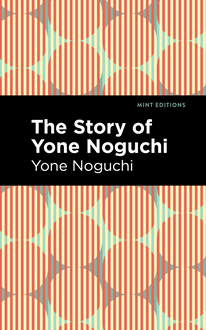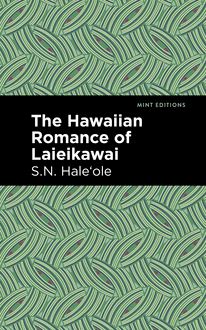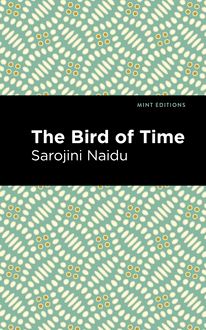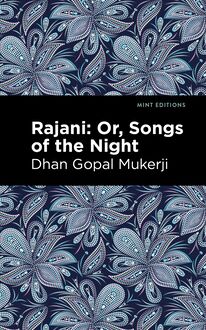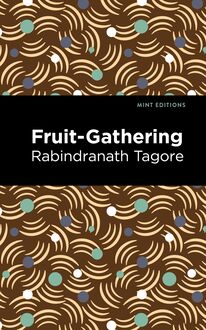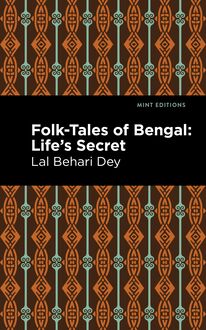-
 Univers
Univers
-
 Ebooks
Ebooks
-
 Livres audio
Livres audio
-
 Presse
Presse
-
 Podcasts
Podcasts
-
 BD
BD
-
 Documents
Documents
-
- Cours
- Révisions
- Ressources pédagogiques
- Sciences de l’éducation
- Manuels scolaires
- Langues
- Travaux de classe
- Annales de BEP
- Etudes supérieures
- Maternelle et primaire
- Fiches de lecture
- Orientation scolaire
- Méthodologie
- Corrigés de devoir
- Annales d’examens et concours
- Annales du bac
- Annales du brevet
- Rapports de stage
La lecture à portée de main
Vous pourrez modifier la taille du texte de cet ouvrage
Découvre YouScribe en t'inscrivant gratuitement
Je m'inscrisDécouvre YouScribe en t'inscrivant gratuitement
Je m'inscrisEn savoir plus
Vous pourrez modifier la taille du texte de cet ouvrage
En savoir plus

Description
Life and Letters of Toru Dutt (1921) is a biography of Toru Dutt. Comprising biographical sections by scholar Harihar Das, selections from her many letters, and commentary on her novels and translations, Life and Letters of Toru Dutt is an invaluable resource for information on a pioneering figure in Indian history and Bengali literature. Born in Calcutta to a family of Bengali Christians, Toru Dutt was raised at the crossroads of English and Indian cultures. In addition to her native Bengali, she became fluent in English, French, and Sanskrit as a young girl, eventually writing novels and poems in each language. Harihar Das’ biography is an exhaustive record of her life from youth to young adulthood, granting particular attention to her travels in England and Europe, which Dutt herself describes in beautiful prose in letters to friends and family. Despite her limited body of work, Dutt’s legacy as a groundbreaking writer remains firm in India and around the world. With a beautifully designed cover and professionally typeset manuscript, this edition of Harihar Das and Toru Dutt’s Life and Letters of Toru Dutt is a classic work of Bengali literature reimagined for modern readers.
Sujets
Informations
| Publié par | Mint Editions |
| Date de parution | 08 juin 2021 |
| Nombre de lectures | 0 |
| EAN13 | 9781513288376 |
| Langue | English |
| Poids de l'ouvrage | 1 Mo |
Informations légales : prix de location à la page 0,0500€. Cette information est donnée uniquement à titre indicatif conformément à la législation en vigueur.
Extrait
Life and Letters of Toru Dutt
Harihar Das and Toru Dutt
Life and Letters of Toru Dutt was first published in 1921.
This edition published by Mint Editions 2021.
ISBN 9781513283357 | E-ISBN 9781513288376
Published by Mint Editions®
minteditionbooks .com
Publishing Director: Jennifer Newens
Design & Production: Rachel Lopez Metzger
Project Manager: Micaela Clark
Typesetting: Westchester Publishing Services
This Memoir
of her Beloved Indian Friend
T ORU D UTT
is Affectionately Dedicated to
M ARY E. R. M ARTIN
in Grateful Recognition of
her Tender Sympathy
Mais elle é toit du monde, o ù les plus belles choses
Ont le pire destin;
Et, rose, elle a v é cu ce que vivent les roses,
L’espace d’un matin.
—M ALHERBE
Mourn rather for that holy Spirit,
Sweet as the spring, as ocean deep;
For Her who, ere her summer faded,
Has sunk into a breathless sleep.
—W ORDSWORTH
Nor blame I Death, because he bare
The use of virtue out of earth:
I know transplanted human worth
Will bloom to profit, otherwhere.
—T ENNYSON
C ONTENTS F OREWORD A UTHOR ’ S P REFACE I. T HE D UTT F AMILY II. E ARLY L IFE , V ISIT TO E UROPE , AND P REPARATION FOR A C AREER III. R ETURN TO I NDIA IV. T ORU ’ S L ETTERS TO M ISS M ARTIN , D ECEMBER 1873—D ECEMBER 1875 V. T ORU ’ S L ETTERS TO M ISS M ARTIN , J ANUARY —D ECEMBER 1876 VI. T ORU ’ S L ETTERS TO M ISS M ARTIN , J ANUARY —J ULY 1877 VII. T HE C HARACTER OF T ORU D UTT AS REVEALED IN HER L ETTERS VIII. “A S HEAF GLEANED IN F RENCH F IELDS ”, AND “A S CENE FROM C ONTEMPORARY H ISTORY ” IX. L AST D AYS X. “B IANCA ” AND “L E J OURNAL DE M LLE D’A RVERS ” XI. “A NCIENT B ALLADS AND L EGENDS OF H INDUSTAN ” XII. S UPPLEMENTARY R EVIEW A PPENDIX
F OREWORD
The subject of this volume is an Indian girl who, dying at the age of twenty-one, has left behind her a legacy in verse and prose which, quite apart from its true and delicate poetic quality, constitutes an amazing feat of precocious literary craftmanship. Toru Dutt was a poet with a rare genius for the acquisition of languages not her own. In her all too brief life she mastered Sanskrit and wrote in French and English with a grace, a facility, and an individual distinction which have given her rank among the authentic voices of Western literature. Her ear, indeed, sometimes betrayed her. On points of diction she was not always beyond reproach. Here and there in the Ancient Ballads and Legends of Hindustan or in her amazing renderings from the French poets, we come across a word, a phrase, a discord, which remind us that the poet was not of our race or speech, and much the same has been said of her French prose romance by those best qualified to judge of it. Yet when every deduction has been made for unessential blemishes, this child of the green valley of the Ganges has by sheer force of native genius earned for herself the right to be enrolled in the great fellowship of English poets.
I do not think that there was ever a mystery about the character of this frail and sensitive Indian lady. Even were nothing known of the external facts of her life, we should have been able to infer from her published writings the essential qualities of a nature, pure, innocent, religious, alive to beauty in all its forms, and capable of a wide range of appreciation in the field of poetic literature. The pious labours of Mr. Das have now added some welcome and altogether attractive touches. They show us how devoid was Toru of the foibles often attaching to the literary character, how exempt from ostentation, vanity, self-consciousness, how childlike and eager, with how warm a glow of affection she embraced her friends, how free was her composition from all bitter and combustible elements. They enable us also to realize how much she was helped by the fact of her Christian training to an appreciation of certain aspects of Western literature (her love of Paradise Lost and Lamartine are illustrations) not usually congenial to the Indian mind, and how personal friendships formed during a girlhood spent partly in France and partly in England united to strengthen her hold upon the essential soul of the two languages in which she wrought. It is pleasant too to learn more of that garden home in Calcutta which is described in “Our Casuarina Tree”, one of the loveliest of the lyrics contained in the Ancient Ballads and Legends of Hindustan. Here is a vignette taken from one of her letters:
“The night was clear, the moon resplendent, one or two stars glimmering here and there; before us stretched the long avenue bordered with high casuarinas, very like the poplars of England, dim in the distance the gateway; around us the thick mango groves; the tall betel-nut trees, straight ‘like arrows shot from heaven’; the cocoanut palms with their proud waving plumes of green foliage, and all wrapped in a sweet and calm silence.”
Yet it is characteristic that all this tropical loveliness never completely contents or confines her. Home, after all, is in part exile. She cannot forget the beloved West, the enchantments of frost and snow, the delicate landscapes of France, the vivid, eager College life at Cambridge. In comparison with the stir and bustle of the West, the days in India seemed monotonous and without event. So in the midst of the profuse splendours of the East her thoughts continually reach out to that other home beyond the Ocean, which travel and study had made so dear to her, as, for example, to the world (known only through books) of the Bront ë sisters, living “among the lonely wild moors of Yorkshire, all three so full of talent, yet living so solitary amid those Yorkshire wolds,” or to the days which stood out with such cameo-like distinctness in her memory, when she enjoyed the free life of a student by the banks of the Cam, passing “nice cosy evenings” with her friend, and on Sundays drinking deep draughts of music from the College organ. In the long history of the contact and interfusion of East and West, I doubt whether there is a figure more encouraging or significant.
H. A. L. F ISHER
April 3, 1920
A UTHOR ’ S P REFACE
Biography is a subject which until recently Indian writers have somewhat neglected. The whole trend of India’s history and philosophy has been against it. This is of itself sufficient to account for the fact that, although it is now forty-three years since Toru Dutt’s death, no biography of her has yet been written. But now that India is beginning to realize her own solidarity as an Empire, along with the birth of this consciousness she has begun to cherish the memory of those who have added to the literary wealth, not only of India, but also of the world.
I feel, then, that no further apology is needed from me for this attempt to do honour to an Indian maiden, in truth an “inheritor of unfulfilled renown”, in view not only of what was lost to the world through her early death, but also of the comparative oblivion into which her name has sunk.
It was during boyhood, in my native village at Sidhipasa, that I first heard the name of Toru Dutt from a student in whose examination text-book her poem “Buttoo” was included. After reading these verses a desire to know something of its author was immediately born in me—a desire that was for several years to remain unsatisfied. Then, on glancing through a Bengali book, which contained sketches of famous Indian women, I found one of Toru Dutt. It was, however, so incomplete that it merely served to whet my appetite for still further knowledge.
A few years later, on scanning the titles of the books in my father’s library, I found a beautiful volume entitled A Sheaf gleaned in French Fields by Toru Dutt. Seizing it eagerly, I found in it a prefatory memoir written by her father. Even this was not full enough to allay my thirst for a thorough acquaintance with the biography of my heroine, and at this juncture the idea of writing myself what I could not find elsewhere began to take shape in my mind.
In December 1911, I began the task of collecting materials for the biography, and was fortunate in obtaining an introduction to some of Toru Dutt’s relatives in Calcutta. Through them I was placed in touch with Miss Martin, who had known Toru intimately in Cambridge. In reply to my request for reminiscences, she wrote, “I am much interested in hearing that you are wishing to bring out a memoir of my dear friend, Toru Dutt; I have already begun my notes for it. It is very wonderful after these many years of silence, that people should be beginning to think of her again.”
Miss Martin’s visit to India in the winter of 1913 gave me an invaluable opportunity of gaining the information I sought. Through her kindness I am able to publish Toru’s letters, which had been treasured with zealous care for so many years. My indebtedness to Miss Martin for her unvarying kindness in giving me access to all the available material in her possession, in addition to her constant and stimulating encouragement, cannot be over-estimated. Suffice it to say, that without this help the biography would never have been written. The correspondence between Toru and Mlle Bader concerning her La Femme dans l’Inde Antique has been translated and added to the appendix.
I should like to thank my friends, Mr. and Mrs. Barun Chunder Dutt, and other members of the Dutt family who have supplied me with useful information. Grateful acknowledgements too are due to another friend, Principal E. J. Thompson, B.A., M.C., of the Wesleyan College, Bankura, Bengal, who has revised the MS. and written the supplementary review which appears in this book. Mr. P. C. Lyon, C.S.I., sometime Member for Education on the Bengal Executive Council, the late Bishop Lefroy of Calcutta, and my friend Mr. G. C. Ghose, President, Christian Convention League, Bengal, have also laid me under a debt by their kindness in giving advice, encouragement, and many valuable suggestions.
I have also to thank Mr
-
 Univers
Univers
-
 Ebooks
Ebooks
-
 Livres audio
Livres audio
-
 Presse
Presse
-
 Podcasts
Podcasts
-
 BD
BD
-
 Documents
Documents
-
Jeunesse
-
Littérature
-
Ressources professionnelles
-
Santé et bien-être
-
Savoirs
-
Education
-
Loisirs et hobbies
-
Art, musique et cinéma
-
Actualité et débat de société
-
Jeunesse
-
Littérature
-
Ressources professionnelles
-
Santé et bien-être
-
Savoirs
-
Education
-
Loisirs et hobbies
-
Art, musique et cinéma
-
Actualité et débat de société
-
Actualités
-
Lifestyle
-
Presse jeunesse
-
Presse professionnelle
-
Pratique
-
Presse sportive
-
Presse internationale
-
Culture & Médias
-
Action et Aventures
-
Science-fiction et Fantasy
-
Société
-
Jeunesse
-
Littérature
-
Ressources professionnelles
-
Santé et bien-être
-
Savoirs
-
Education
-
Loisirs et hobbies
-
Art, musique et cinéma
-
Actualité et débat de société
- Cours
- Révisions
- Ressources pédagogiques
- Sciences de l’éducation
- Manuels scolaires
- Langues
- Travaux de classe
- Annales de BEP
- Etudes supérieures
- Maternelle et primaire
- Fiches de lecture
- Orientation scolaire
- Méthodologie
- Corrigés de devoir
- Annales d’examens et concours
- Annales du bac
- Annales du brevet
- Rapports de stage

